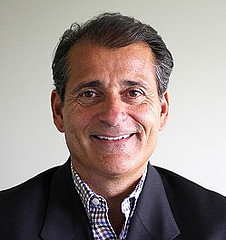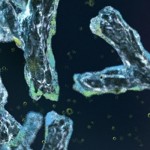Immunotherapy is a type of cancer treatment that uses the body’s own immune system to fight cancer. Unlike traditional treatments that use chemotherapy and radiation to stop the growth of cancer – or to kill cancer cells outright – immunotherapy unblocks the immune system to allow the body to target and destroy the cancer.

The immune system detects and destroys abnormal cells. In fact, the immune system most likely prevents or slows the growth of many types of cancer cells. Immune cells are often found in or near tumors, for example. These cells, known as tumor-infiltrating lymphocytes (TILs), are often a sign that a person’s immune system is fighting the cancer. The National Cancer Institute notes that patients whose tumors contain TILs often fare better than those people whose cancer does not contain these lymphocytes.
While the immune system can prevent or slow the spread of cancer, cancer cells can avoid destruction by the immune system in a number of ways. Cancer cells may undergo genetic changes that make them harder for the immune system to detect, for example, or the surface of cancer cells may have proteins that turn off immune cells. In some cases, cancer cells can even cause the cells around the tumor to interfere with the immune system and prevent the destruction of cancer cells. Immunotherapy helps the immune system fight cancer.
Immunotherapy: Then and Now
Immunotherapy has its roots in 19th century medicine, when two German scientists independently noticed that patients’ tumors shrank after suffering a common skin infection. Bone surgeon William Bradley Coley first attempted to harness the immune system for treating bone cancer in 1891. Discoveries of T cells, interleukins, and other components of the immune system accelerated the research that led to cancer immunotherapy used today.
Medical professionals now refer to immunotherapy as the “fifth pillar” of cancer therapy, joining surgery, chemotherapy, radiation, and targeted therapy. Because it has become such an important approach to cancer treatment, and because of an increasing number of FDA approvals for immunotherapy drugs, a growing number of pharmaceutical companies are now offering immunotherapy drugs. In fact, Grand View Research, Inc. predicts the global cancer immunotherapy market will likely reach $126.9 billion by 2026. This growing market will help more patients get the immunotherapy drugs they need to treat cancer.

Doctors now use immunotherapy to treat a variety of cancers, including:
- Lung cancer
- Melanoma and some other types of skin cancers
- Kidney cancer
- Bladder cancer
- Head and neck cancers
- Lymphoma, which is cancer of the infection-fighting cells of the immune system
“Immunotherapy” is an umbrella term that covers several types of treatment for cancer, which can include:
Immune checkpoint inhibitors – Natural proteins, known as immune checkpoints, prevent the immune system response from being too strong, but they may prevent the immune system response from being strong enough to fight cancer; immune checkpoint inhibitors blocks these checkpoints to allow the body to mount a very strong immune response to cancer cells
T-cell transfer therapy – T-cells are a part of the immune system that recognize and kill viruses and abnormal cells; T-cell transfer therapy involves taking immune cells from the tumor, reproducing them in a lab, and then reintroducing them into the body through a needle in the vein
Monoclonal antibodies – Created in a lab, monoclonal antibodies bind to specific targets on cancer cells, thereby marking the cells for destruction by the immune system
Treatment vaccines – Boosts the body’s immune response against cancer
Immune system modulators – These drugs enhance the immune system’s response to cancer
Clinicians can administer immunotherapy in a variety of ways, including intravenous (IV) through a needle in a vein, oral, and topical preparations in cream form. In cases of bladder cancer, immunotherapy can be delivered via intravesical administration of immunotherapy fluid directly into the bladder.
For more information on immunotherapy for the treatment of cancer, consult with a physician or cancer care specialist.
To View Frank Magliochetti Press Releases Please CLICK HERE
Frank Magliochetti owes his professional success to his expertise in two areas: medicine and finance. After obtaining a BS in pharmacy from Northeastern University, he stayed on to enroll in the Masters of Toxicology program. He later specialized in corporate finance, receiving an MBA from The Sawyer School of Business at Suffolk University. His educational background includes completion of the Advanced Management Program at Harvard Business School and the General Management Program at Stanford Business School. Frank Magliochetti has held senior positions at Baxter International, Kontron Instruments, Haemonetics Corporation, and Sandoz. Since 2000, he has been a managing partner at Parcae Capital, where he focuses on financial restructuring and interim management services for companies in the healthcare, media, and alternative energy industries. Last year, he was appointed chairman of the board at Grace Health Technology, a company providing an enterprise solution for the laboratory environment. Most recently; Frank was appointed Chairman and Chief Executive Officer at Designer Genomics International, Inc. The Company has accumulated a growing body of evidence that highlights a link between alterations in the immune and inflammatory systems and the development of chronic human disease. The Company is visionary and has established itself as a leader in the field of inflammatory and immune genetic DNA and RNA biomarkers that play a causative role in debilitating conditions, such as atherosclerosis/heart disease, diabetes, arthritis, inflammatory bowel disease, post-traumatic stress disorders (PTSD) and cancer.
A proprietary state-of-the art data mining bioinformatics program, called ‘cluster analysis’ will be used to measure disease development susceptibility with potential for earlier diagnosis and intervention. The company is developing a healthcare program based on its proprietary genetic panels that will allow people to be their own healthcare advocate and take an active role in their health status as well as longevity.


Mr. Frank Magliochetti MBA
Managing Partner
Parcae Capital
www.parcaecapitalcorp.com
www.frankmagliochetti.com
Sources
https://www.cancer.gov/about-cancer/treatment/types/immunotherapy
https://www.ncbi.nlm.nih.gov/pmc/articles/PMC6928196/
https://www.cancerresearch.org/immunotherapy/timeline-of-progress
https://www.grandviewresearch.com/press-release/global-cancer-immunotherapy-market











